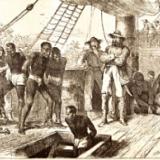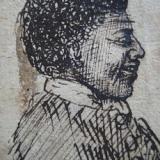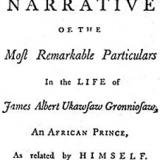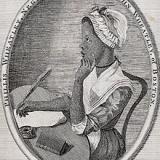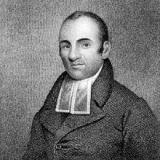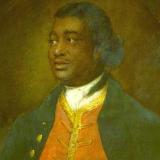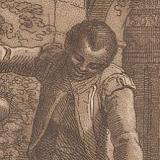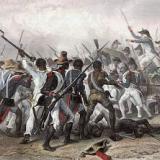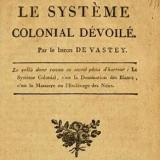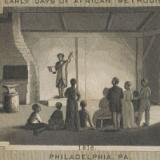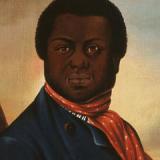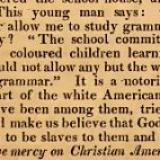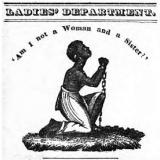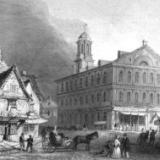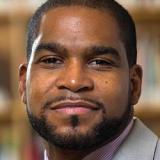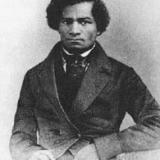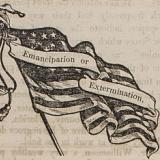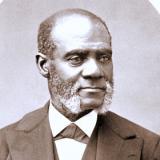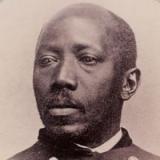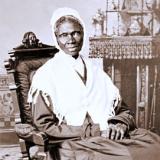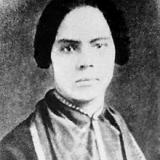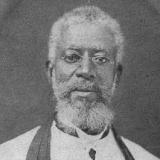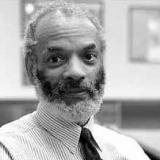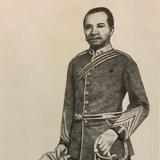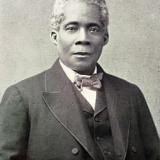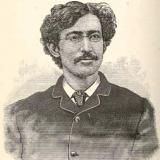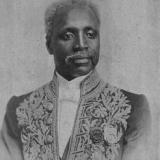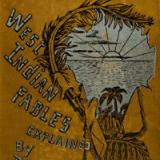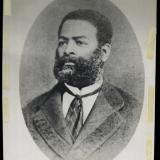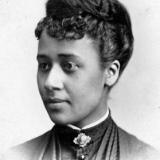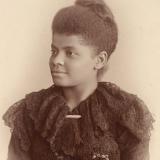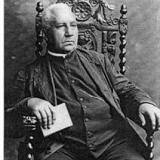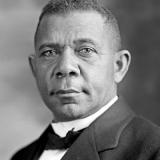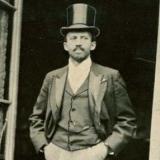Slavery and the Creation of Diasporic Africana Philosophy
In this second series of episodes on Africana philosophy, we expand our focus beyond the African continent to begin discussing philosophical thought in the African diaspora. In the wake of the transatlantic slave trade and chattel slavery in the European colonies of the Americas, along with early forms of European colonial activity in Africa, new forms of philosophical thought arose among African peoples and those descended from African peoples. Modern Africana philosophy, in comparison with the precolonial traditions of philosophy we explored in the first part of the series, takes place primarily in European languages and is shaped in many ways by European traditions of philosophy. It is distinct from these European traditions, however, in being concerned above all with questions generated by the traumatic experiences of slavery and European domination. How should these experiences be understood and what do they tell us about the nature of humanity, race, and justice? How should black people respond to forces of oppression?
Our focus in this part of the series will be on thinkers wrestling with these and other sorts of philosophical questions in the 18th and 19th centuries. We will discuss well-known figures such as Toussaint Louverture, Frederick Douglass, and Sojourner Truth, and many who are not as well-known as they should be, such as Anton Wilhelm Amo, Maria W. Stewart, and Anténor Firmin.
• D.D. Bruce, Jr., The Origins of African American Literature, 1680-1865 (Charlottesville: 2001).
• V. Carretta (ed.), Unchained Voices: An Anthology of Black Authors in the English-Speaking World of the Eighteenth Century (Lexington KY: 1996).
• S.R. Cudjoe, Beyond Boundaries: The Intellectual Tradition of Trinidad and Tobago in the Nineteenth Century (Wellesley: 2003).
• O.R. Dathorne, The Black Mind: A History of African Literature (Minneapolis: 1974).
• D.B. Davis, The Problem of Slavery in the Age of Revolution, 1770-1823 (Ithaca: 1975).
• M.A. Gomez, Exchanging Our Country Marks: The Transformation of African Identities in the Colonial and Antebellum South (Chapel Hill: 1998).
• J. Hooker, Theorizing Race in the Americas: Douglass, Sarmiento, Du Bois, and Vasconcelos (New York: 2017).
• J. Jorati, Slavery and Race: Philosophical Debates in the Eighteenth Century (Oxford: 2023).
• R. July, The Origins of Modern African Thought: Its Development in West Africa During the Nineteenth and Twentieth Centuries (New York: 1967).
• G.K. Lewis, Main Currents in Caribbean Thought: The Historical Evolution of Caribbean Society in Its Ideological Aspects, 1492-1900 (Baltimore: 1983).
• W. Moses, The Golden Age of Black Nationalism (Hamden, CT: 1978).
• S. Stuckey, Slave Culture: Nationalist Theory and the Foundations of Black America (New York: 1987).
• E. Sundquist, To Wake the Nations: Race in the Making of American Literature (Cambridge, MA: 1993).
Posted on
An introduction to Africana philosophical thought as it emerged from the modern experience of slavery and colonization by Europeans.
Posted on
Anton Wilhelm Amo, brought to Germany from his native Ghana, defends a rigorous dualism of mind and body. Was this philosophy connected to his African origins?
Posted on
Justin E.H. Smith joins us to discuss Anton Wilhelm Amo against the background of ideas about race in early modern philosophy, including Leibniz.
Posted on
Eighteenth century black authors touch on philosophical themes in autobiographical narratives, poetry, and other literary genres.
Posted on
Phillis Wheatley astonishes colonial Americans with her exquisite and precocious poetry and reflects on the liberating power of the imagination.
Posted on
Preacher and Revolutionary War soldier Lemuel Haynes argues that the principles of the American Revolution demand the abolition of slavery.
Posted on
Ignatius Sancho and Benjamin Banneker make their mark on the history of Africana thought through letters that reflect on the power of sentiment.
Posted on
Quobna Ottobah Cugoano and Olaudah Equiano advance the goals of the abolitionist movement through a groundbreaking political treatise and an influential autobiography.
Posted on
In an age of revolutions and revolutionary ideas, the Haitian Revolution of 1791-1804 stands out as the most radical of them all.
Posted on
The Baron de Vastey unveils the horror of colonialism as a system and defends the monarchy of King Christophe in the tense early years of Haiti’s independence.
Note: this episode repeats some of Vastey's vivid descriptions of violence against slaves, so please think twice before listening to it around kids for example.
Posted on
An interview with Doris Garraway on the background, intellectual basis, and legacy of the Haitian Revolution.
Posted on
Building black institutions in early American history, with Prince Hall and the Masons in Boston, and Richard Allen and the Methodists in Philadelphia.
Posted on
Questions of political autonomy and group identity in the emigration movement led by Paul Cuffe, Daniel Coker, John Russwurm and others.
Posted on
An interview with James Sidbury about the emergence of a self-conscious African identity in the diaspora.
Posted on
David Walker defends violent resistance in his incendiary and influential Appeal.
Posted on
Maria W. Stewart’s public addresses bring the concerns of African American women into the struggle against racial prejudice.
Posted on
Hosea Easton’s Treatise provides an overlooked but fascinating theory of race and racism.
Posted on
Melvin Rogers joins us to discuss David Walker, Maria Stewart, and Hosea Easton.
Posted on
Frederick Douglass' journey from slave to leading figure of 19th century American thought.
Posted on
In two speeches marking holidays, Frederick Douglass champions the idea of world citizenship, the power of appeals to conscience to bring change, and the role of violence.
Posted on
Henry Highland Garnet encourages, or actually demands, that enslaved Americans throw off their chains and debates Douglass over how best to resist slavery.
Posted on
He is called a “father of black nationalism,” but Martin Delany also promoted integration in American society. Can the apparent tension be resolved?
Posted on
The moral crusades of Sojourner Truth and Frances Harper, activists against racial and gender oppression.
Posted on
Mary Ann Shadd and Samuel Ringgold Ward reflect on what Canada can offer African Americans, differing on the problem of racism.
Posted on
From his time in Liberia to his later concentration on the reform of African American culture, Alexander Crummell identifies progressive “civilization” as a means of liberation.
Posted on
Wilson Moses speaks to us about his research into early black nationalism, with reference to Crummell, Douglass, and others.
Posted on
Africanus Horton looks toward a future of self-government for West Africa beyond slavery and colonialism.
Posted on
Edward Blyden gains appreciation for Islam in West Africa and gradually moves from political nationalism to cultural nationalism.
Posted on
T. Thomas Fortune uses newspaper editorials to put forth a theory of civil rights and sets out a plan of political action for protecting them.
Posted on
Haitian anthropologist Anténor Firmin debunks racist pseudo-science and argues that inequalities among humans are caused by social, not biological, factors.
Posted on
John Jacob Thomas argues for self-government in the English colonies of the Caribbean but his fellow Trinidadian Frederick Alexander Durham recommends repatriation to Africa instead.
Posted on
Abolitionists Luiz Gama and Joaquim Nabuco, and the great novelist Machado de Assis, react to the injustices of slaveholding in Brazil.
Posted on
Anna Julia Cooper’s A Voice from the South, an unprecedented contribution to black feminist theory.
Posted on
Ida B. Wells, her tireless crusade against lynching, and her analysis of the underlying purpose of racial violence
Posted on
Brittney Cooper on activists connected to the National Association of Colored Women, including Fannie Barrier Williams, Mary Church Terrell, and Ida B. Wells.
Posted on
A late 19th-century churchman tries to explain how slavery fit into God’s plan and decide whether the future for African Americans lies in Africa or America.
Posted on
Was Booker T. Washington’s “accommodationist” approach to race relations a failure to stand up to injustice or a cunning strategy for incremental change?
Posted on
W.E.B. Du Bois emerges as a historian, sociologist, and innovative philosophical thinker in the 1890s, and introduces his famous idea of "double consciousness."
Posted on
Co-host Chike joins Peter to look back at series two and ahead to series three.




